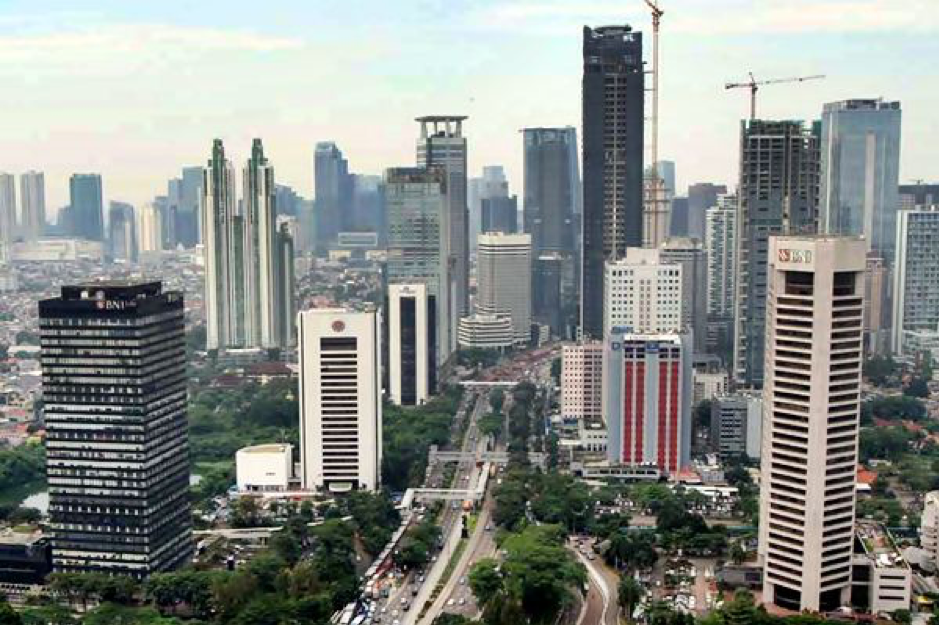Editor: Shoeb Z Kagda
The start of a new decade was not particularly sunny for Indonesia. As the nation marked New Year’s Day, it faced the full force of nature as heavy rain pummeled the capital city, causing wide spread floods.
But neither the floods nor global political uncertainty has doused the rising optimism amongst Indonesian business leaders of better times ahead, especially as President Joko Widodo starts his second five-year term in office.
Economic growth is stable, but the increase is not too strong with projected growth to be 5.1% -5.5% this year.
Bank Indonesia
There is no place to go but forward. Fundamental issues such as regulatory and bureaucratic barriers, ease of business, and key areas of commerce and investment, to name a few, are long overdue. Though the Widodo administration has made significant strides to address such issues in the first term, the nation is gripped to see whether this sentiment is carried onto in the second term.
Crisis is a word that painted the global economy last year and continues to take effect into the new year. This has led to an increasingly sluggish business climate.
According to the International Monetary Fund, global economic growth in 2019 only reached 3.2%. Whereas, projected growth for 2020 is expected at 3.5%, lower than the previous projection of 3.6%.
Global economic conditions will certainly impact Indonesia. According to Bank Indonesia, economic growth is stable, but the increase is not too strong with projected growth to be 5.1% -5.5% this year.
One of President Joko Widodo’s targets is to reach at least a 5.6%-6.2% average economic growth per annum during his second term annum in office. The planning ministry identified the lowest average this year as 5.4%, middle tier as 5.6%, and the highest as 6%. This year’s growth target is 5.3%.Though seemingly a low target compared to the aforesaid goals, David Sumual, chief economist of Bank Central Asia, said that this is possible under the condition that structural reforms come to fruition in the next two years. If achieved, there is a chance that growth could accelerate, but only to 5.8% by the end of President Widodo’s second term.
The Indonesia Economic Forum (IEF) touched on this theme during the 6thannual IEF held on November 20, 2019 during a panel discussion on “Investing in Uncertain Times: From Infrastructure to Services.”
Thomas Trikasih Lembong, Former Chairman BKPM, noted that despite the continuing global ructions and last year’s negative headlines global economic outlook remains bullish. Lembong said that the worst of the global economic downturn was over and that a global economic rebound was underway. The conclusion of phase one of the US-China trade deal has a harbinger of better economic times ahead.
His sentiment was shared by Sumit Dutta, President Director, PT HSBC Indonesia. Dutta painted a stable picture of the country’s macroeconomic factors. He indicated that in the last few years the Rupiah has been stable; inflation was down to 3%; interest rates are in the single digits; and the nation’s level of debt as percentage to GDP was the lowest in the Asia Pacific. In terms of political and social stability, Indonesia is one of the most stable countries.
The IEF Business Leaders Survey, last November, collected the opinions of 50 business leaders at the IEF conference and enquired, “Are you optimistic Indonesia’s GDP will improve?” More than half of the respondents expected the economy to expand in 2020.
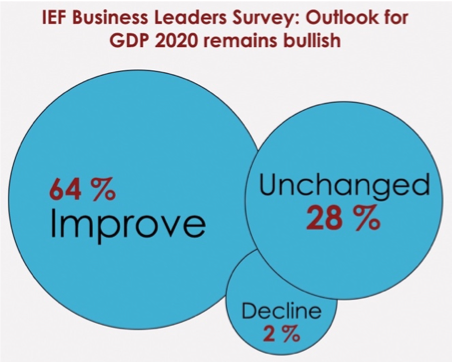
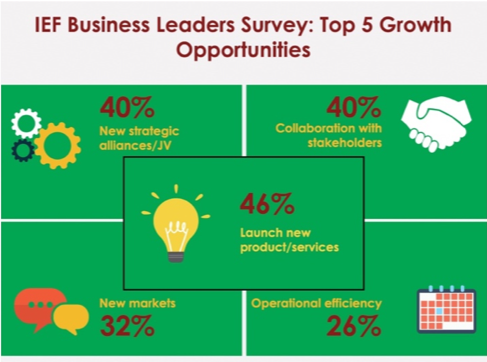
The Future of Employment: Bright?
To further maintain the macroeconomic stability within the nation, the advent of digitization in all sectors, especially its impact on employment need to be addressed, said Sandiaga Uno, Entrepreneur, Former Vice Governor DKI Jakarta. Speaking on the same panel, he said that unemployment is one of the highest concerns amongst Indonesians today.
Confidence remains high from the IEF Business Leader survey results for this year. Majority of business leaders were confident of their own company’s revenue and growth in the year 2020. Though one of the top challenges for companies is human capital development with 21% of the respondents listing it as among the top five challenges facing corporations.
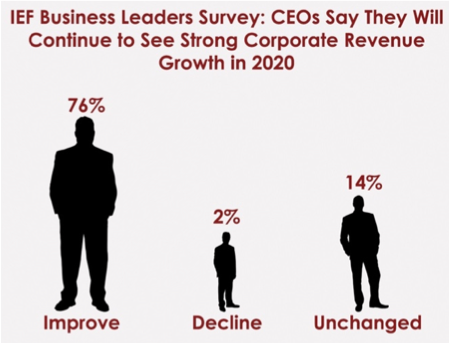
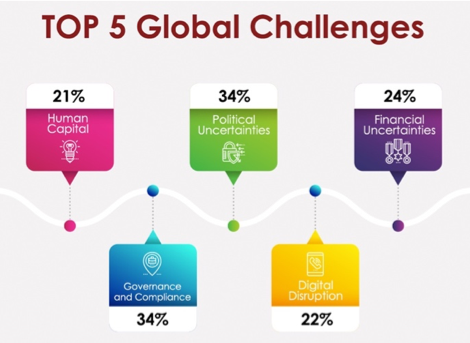
The country maybe in the midst of the 4thIndustrial Revolution, but Indonesia may find itself in a tight spot if changes are not made in terms of skill development. According to a Jakarta Post article, the Wittgenstein Centre for Demography and Global Human Capital, only 14.4% of millennials (20 -34 years old) in Indonesia have any post-secondary education at all, while only a tiny 0.38% have graduate degrees. This is an issue as majority of the workforce demographics this year and onwards will be mainly comprised of millennials.
Among the solutions to overcome the skills gap include overhauling the national curriculum towards adopting the tools of tomorrow as well as inproving vocational training for youth. The goal must be to better prepare them for long-term employment that is not easily replaced by automation or robots in the following decades. Another top priority for Widodo’s second term is the omnibus bill on job creation and another one on tax. John Riady, chief executive of PT Lippo Karawaci (LPKR), saidthat once passed, it has the potential to lift the 5% rut the country had been stuck in for several years, and help reduce unemployment. The bill will overhaul 79 separate existing laws and 1,244 clauses in a push for jobs and foreign investment, according in a Bloomberg interview.
The Omnibus Bill is viewed as critical to also improving Indonesia’s investment climate and simplifying regulations, one of the key drawbacks to attracting more capital-intensive industries to the country. According to HSBC’s Dutta, Indonesia is not sufficiently integrated into the global supply chain network, a limitation which the Omnibus Bill will hopefully resolve.
But given the public pushback, especially from labor unions, environmentalist and economist, the passage of the Omnibus Bill into law is not expected to be straightforward or easy. So while the macro-economic outlook and business sentiment remain strong for 2020, some hurdles will need to be crossed for Indonesia to realize its full economic potential.

